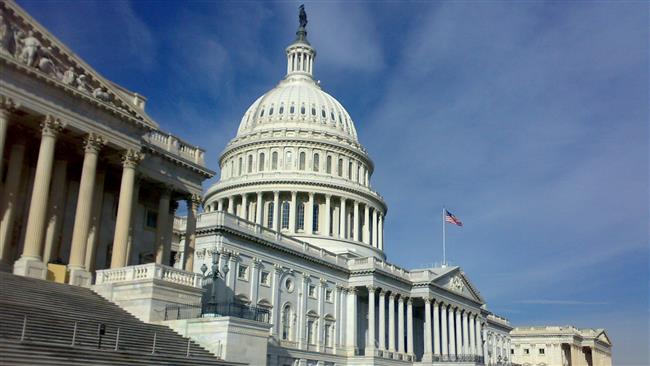
RNA - At the same time, there were others who believed that getting into an agreement, in which the US is a party to, can never work because Washington is not trustworthy. Now, the US Congress has approved the extension of Iran Sanctions Act for 10 more years, despite approvals by the International Atomic Energy Agency (IAEA) that Iran has kept its part of the deal. So, what does this all mean for the nuclear agreement? In this edition of ‘The Debate,’ Press TV has spoken with Richard Becker, with the ANSWER Coalition from San Francisco, and Frederick Peterson, a congressional defense policy adviser from Washington, to see how the extension of sanctions against Iran could hurt the reliability of the American government.
Richard Becker maintains that the extension of the sanctions bill by the US Congress has revealed Washington's unreliability for those who were in favor of a detente policy, adding that the US history is filled with numerous cases of violating domestic and international treaties.
“There's a very long history of the United States government violating treaties and agreements. One needs only to ask the Native Americans, the indigenous people of this continent, with whom every single treaty, hundreds of treaties, were violated after they were solemnly signed. This is certainly an act of bad faith on the part of the US government.”
This is a very normal development when there is no pro-Iran lobby of any significance within the US establishment, Becker noted, adding that the anti-Iran lobby won 100 percent of congressional votes in the same way that the pro-Israel lobby always gets unanimous votes.
Becker further emphasized that President-elect Donald Trump is picking the most radical and anti-Iran politicians for his cabinet; therefore, one must not expect the next administration to take a milder approach towards Iran in comparison with President Barack Obama and his Secretary of State Hillary Clinton, who, according to Becker, always bragged about being the first one introducing crippling sanctions on Iran.
“There were some who thought that Trump was going in a different direction. Well now he has appointed James Mad Dog Mattis -- and Trump likes to call him “Mad Dog” -- as his secretary of defense. I would say we should really call [him] secretary of war. Mattis is highly critical of Iran, calls Iran the main source of instability and a threat to peace in the entire Middle East. That is an amazing statement when you see the Islamic State and al-Qaeda and these other groups and what they're doing,” he argued.
The analysts noted that these remarks reflect the depth of hostility on the part of Mattis and Trump himself who severely criticizes the JCPOA as a bad deal and wants to renegotiate it.
“So, this is all bad faith. I don't think that the Iranian government will accept this and will not go into new negotiations with the United States. So both this vote and Obama signing this ten-year renewal of the sanctions, and the incoming administration, [are] really posing a grave threat,” Becker concluded.
However, Frederick Peterson, the other panelist on the show, maintains that whenever a government signs a deal with another government or governments, there is a right for the next administration to abolish or renegotiate it, if they find it detrimental to the country's interests.
Peterson said that the US extension of the sanctions bill does not necessarily interfere with Iran’s nuclear agreement and as it was reached with unanimous congressional vote, the lame-duck president [Obama] has no choice except to sign it.
“Agreements should have integrity and consistency over time and they should be able to be maintained. However, when a bad agreement is found and negotiated into and made between countries and is utterly rejected by the people of one of the parties, there should be some provision. I think we can all expect the new administration to attempt to renegotiate the agreements made and yet the sanctions that have just been extended do not necessarily conflict with that new agreement,” he opined.
847/940